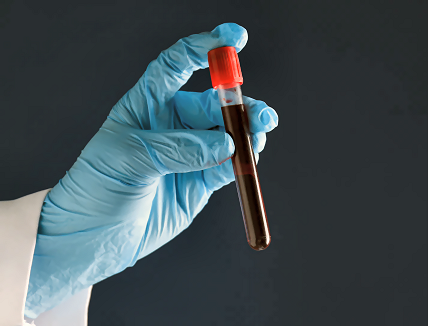Imagine a routine blood test that alerts you to cancer long before symptoms arise—potentially saving lives through early intervention. A breakthrough multicancer early detection (MCED) blood test developed by Johns Hopkins scientists can now detect fragments of tumor DNA circulating in the bloodstream up to three years before a formal diagnosis. This article, crafted for betterhealthfacts.com, explores how the test works, its accuracy, real-world case examples, and what FDA approval could mean for future cancer screening.
How the Johns Hopkins MCED Test Works
The test analyzes cell-free tumor DNA (cfDNA)—tiny fragments shed by tumors into circulation. Using ultra-sensitive sequencing, it can identify cancer-specific genetic mutations or chromosomal alterations, even when present at extremely low levels. Techniques like targeted deep sequencing and PCR-based methods—including digital PCR and Safe-Seq—allow detection of mutant DNA present at less than 0.1% of total cfDNA.
Key Mechanisms
- CfDNA sequencing: Next-generation sequencing and advanced PCR amplify and read DNA fragments linked to cancer.
- Bioinformatics filtering: Algorithms distinguish tumor-specific mutations from background DNA.
- Multiplex detection: The test is designed to detect multiple cancer types simultaneously using genomic and epigenomic markers.
Clinical Study and Accuracy
Researchers analyzed archived blood plasma samples from a large NIH-funded cardiovascular cohort. They tested 52 participants who later developed cancer within six months and a matched control group.
Outcomes
- 8 out of 26 future cancer cases tested positive at time of sampling, and all developed clinically diagnosed cancer within four months.
- Archived samples from 6 of these 8 individuals—taken 3.1 to 3.5 years earlier—also showed detectable tumor DNA in 4 cases, indicating the test's ability to signal cancer long before symptoms.
- Test specificity was exceptionally high, minimizing false positives, and sensitivity varied by cancer type and stage, consistent with other MCED tests.
Reported test performance across MCED platforms ranges from 50–95% sensitivity and 89–99% specificity. In this study, early-stage detections were meaningful and clinically actionable.
Real‑World Examples
One remarkable finding involved four individuals whose samples—banked over three years before symptoms—showed clear tumor DNA signals. Early intervention could have been possible had the test been available clinically.
Lead oncology researcher Dr. Yuxuan Wang, M.D., Ph.D., stated that signals appearing "three years earlier provides time for intervention. The tumors are likely to be much less advanced and more likely to be curable".
Senior authors Bert Vogelstein, M.D., and Nickolas Papadopoulos, Ph.D., also emphasized that early detection enables "more favorable outcome" but highlighted the need for established follow-up protocols.
Implications for FDA Approval
The test currently falls under laboratory-developed test (LDT) protocols. For FDA approval, several steps are required:
- Large-scale, prospective clinical trials demonstrating improved survival outcomes.
- FDA review focused on analytic validity, clinical validity, and how results are used in care decisions.
- Established clinical pathways for follow-up after positive results—imaging, specialist consultation, tissue confirmation, and treatment planning.
Previous MCED tests like CancerSEEK have achieved FDA breakthrough designation and shown high specificity and sensitivity in early trials, though final approval remains pending.
Potential Benefits of FDA Approval
- Earlier detection: Identification of cancers at treatable stages could improve five-year survival rates dramatically (e.g., early breast cancer survival can reach 99% vs <32 at="" late="" li="" stage="">
- Broad screening: May cover multiple cancer types currently lacking effective early tests.
- Personalized risk management: Individuals at higher risk could undergo tailored monitoring and early treatment.
- Reduced late-stage treatment costs: Early-stage cancer therapy is generally less invasive and more cost-effective.
Challenges and Considerations
Despite its promise, MCED testing also presents key challenges:
- False positives: Even rare false alarms could lead to stress, unnecessary procedures, and costs.
- Clinical pathways: No standardized guidelines yet exist on how to respond to positive results.
- Cost and access: High sequencing costs (~$900–$1,000+ per test) and insurance hurdles could limit availability.
- Variable sensitivity: Some cancers shed little cfDNA, and early-stage detection remains inconsistent across tumor types.
Integration into Healthcare
Integration into clinical practice will require:
- Defining target populations (e.g., adults 50+; high-risk individuals).
- Coordinated protocols for imaging and follow-up diagnostics after positive results.
- Training for clinicians to interpret MCED test results responsibly.
- Public education to convey benefits without creating undue fear.
Efforts are already underway with other MCED tests to pilot population-wide screening and clinical trials aiming to show mortality benefit—as seen with DETECT-A and GRAIL’s Galleri program.
What You Can Do Now
While awaiting MCED tests becoming standard of care, individuals can take proactive steps:
- Follow recommended screening guidelines (mammograms, colonoscopy, Pap tests, low-dose CT for smokers).
- Maintain a healthy lifestyle: balanced diet, exercise, quitting smoking, limiting alcohol.
- Know your family health history and discuss genetic testing with your doctor if concerned.
- Stay informed about emerging technologies like the Johns Hopkins MCED test.
Conclusion
The Johns Hopkins multicancer blood test represents a groundbreaking advance in the early detection of cancer—capable of finding tumor DNA up to three years before symptoms appear. With high specificity, promising sensitivity, and real-world early signals, it opens a new frontier in cancer diagnostics. If FDA approval and clinical integration follow, this test could revolutionize cancer screening—saving lives, reducing late-stage treatment costs, and widening early detection beyond single-cancer tests.
At betterhealthfacts.com, we're committed to delivering evidence-based health innovations and empowering readers with knowledge that could change the course of care. As the multicancer early detection landscape evolves, this Johns Hopkins blood test may mark the beginning of a new era—where early detection isn’t just possible, it’s practical.
Stay tuned to betterhealthfacts.com for updates on multicancer blood testing and its journey toward clinical reality.




Post a Comment
Post a Comment